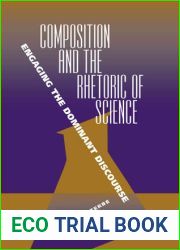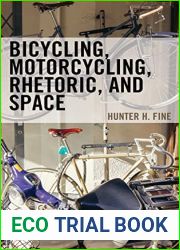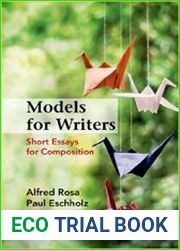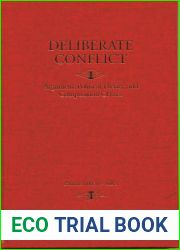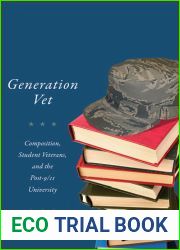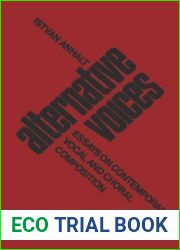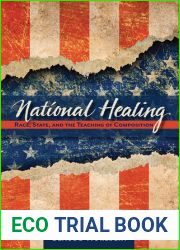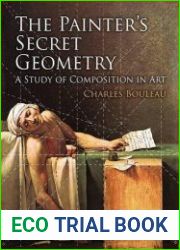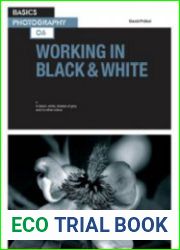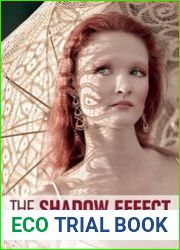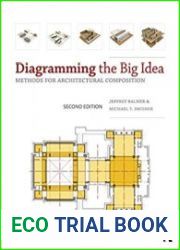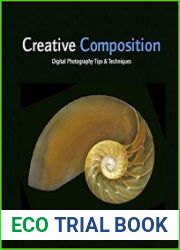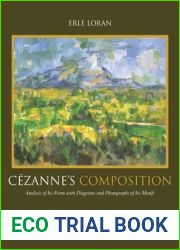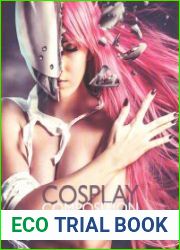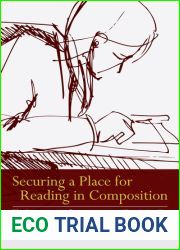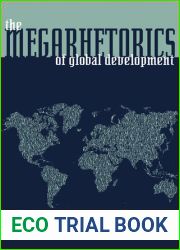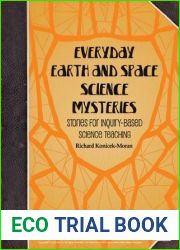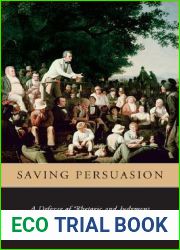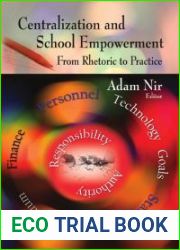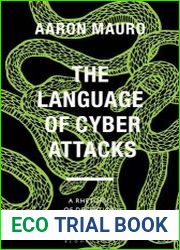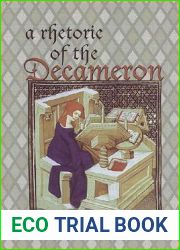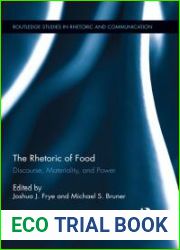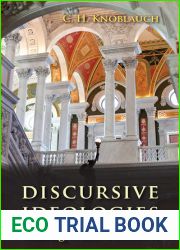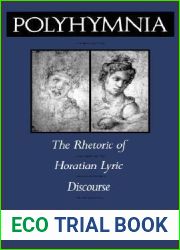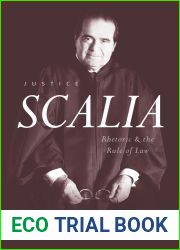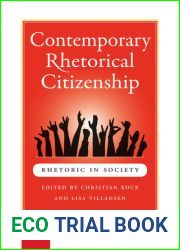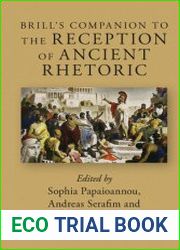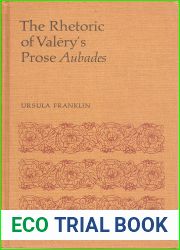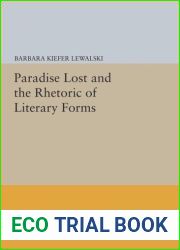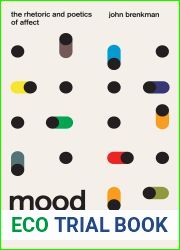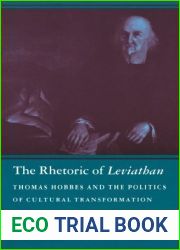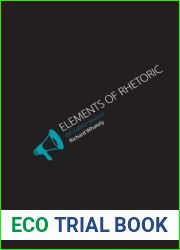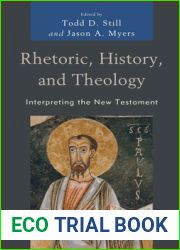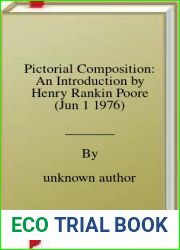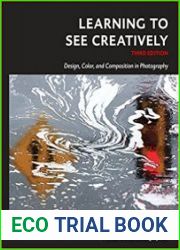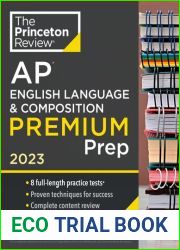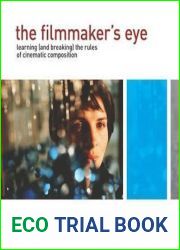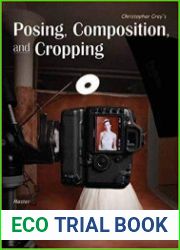
BOOKS - Composition and the Rhetoric of Science: Engaging the Dominant Discourse

Composition and the Rhetoric of Science: Engaging the Dominant Discourse
Author: Michael J. Zerbe
Year: January 1, 2007
Format: PDF
File size: PDF 1.5 MB
Language: English

Year: January 1, 2007
Format: PDF
File size: PDF 1.5 MB
Language: English

Composition and the Rhetoric of Science: Engaging the Dominant Discourse In his thought-provoking book, "Composition and the Rhetoric of Science: Engaging the Dominant Discourse Michael J. Zerbe challenges the conventional approach to teaching scientific discourse in first-year writing courses. Drawing on the works of prominent thinkers such as Lyotard, Zizek, Foucault, and Althusser, Zerbe argues that the dominant discourse of scientific inquiry has been largely overlooked in the field of rhetoric and composition, leaving students without the necessary skills to navigate a technology-driven society. The author contends that by including primary scientific discourse in their teaching, instructors can provide students with the writing and reading abilities required to thrive in a world shaped by science and technology. To illustrate his point, Zerbe offers three pedagogical scenarios, each centered around an accessible example of scientific discourse from a scientific journal. These examples serve as a starting point for exploring how scientific texts can be integrated into writing courses, enabling students to develop a more sophisticated understanding of scientific literacy. By examining popular science writings, Zerbe demonstrates how these works can contextualize primary scientific research, providing a meaningful fluency in scientific discourse not offered by traditional science textbooks.
Композиция и риторика науки: вовлечение доминирующего дискурса В своей книге, заставляющей задуматься, «Композиция и риторика науки: вовлечение доминирующего дискурса» Майкл Дж. Зербе бросает вызов традиционному подходу к обучению научному дискурсу на курсах написания первого года. Опираясь на работы выдающихся мыслителей, таких как Лиотар, Жижек, Фуко и Альтюссер, Зербе утверждает, что доминирующий дискурс научного исследования был в значительной степени упущен из виду в области риторики и композиции, оставляя студентов без необходимых навыков для навигации в обществе, управляемом технологиями. Автор утверждает, что, включая первичный научный дискурс в свое обучение, преподаватели могут предоставить студентам способности письма и чтения, необходимые для процветания в мире, сформированном наукой и технологиями. Чтобы проиллюстрировать свою точку зрения, Зербе предлагает три педагогических сценария, каждый из которых сосредоточен вокруг доступного примера научного дискурса из научного журнала. Эти примеры служат отправной точкой для изучения того, как научные тексты могут быть интегрированы в письменные курсы, позволяя студентам развивать более сложное понимание научной грамотности. Исследуя научно-популярные произведения, Зербе демонстрирует, как эти работы могут контекстуализировать первичные научные исследования, обеспечивая значимое свободное владение научным дискурсом, не предлагаемым традиционными учебниками по науке.
Composition et rhétorique de la science : impliquer le discours dominant Dans son livre qui fait réfléchir, Composition et rhétorique de la science : impliquer le discours dominant, Michael J. Zerbé récuse l'approche traditionnelle de l'apprentissage du discours scientifique dans les cours d'écriture de la première année. S'appuyant sur les travaux d'éminents penseurs tels que Liotard, Gizek, Foucault et Altusser, Zerbé affirme que le discours dominant de la recherche scientifique a été largement négligé dans le domaine de la rhétorique et de la composition, laissant les étudiants sans les compétences nécessaires pour naviguer dans une société dirigée par la technologie. L'auteur affirme que, y compris le discours scientifique primaire dans leur enseignement, les enseignants peuvent fournir aux étudiants les capacités d'écriture et de lecture nécessaires pour prospérer dans un monde façonné par la science et la technologie. Pour illustrer son point de vue, Zerbé propose trois scénarios pédagogiques, chacun centré sur un exemple accessible d'un discours scientifique issu d'une revue scientifique. Ces exemples servent de point de départ pour étudier comment les textes scientifiques peuvent être intégrés dans les cours écrits, ce qui permet aux étudiants de développer une compréhension plus sophistiquée de la littératie scientifique. En explorant des œuvres scientifiques et populaires, Zerbé démontre comment ces œuvres peuvent contextualiser la recherche scientifique primaire en assurant une maîtrise significative du discours scientifique qui n'est pas offert par les manuels scientifiques traditionnels.
Composición y retórica de la ciencia: implicando el discurso dominante En su libro que hace reflexionar, Composición y retórica de la ciencia: involucrando el discurso dominante, Michael J. Zerbe desafía el enfoque tradicional de enseñar el discurso científico en los cursos de escritura del primer año. Apoyándose en el trabajo de destacados pensadores como Liotar, Žižek, Foucault y Althusser, Zerbe afirma que el discurso dominante de la investigación científica se ha pasado por alto en gran medida en el campo de la retórica y la composición, dejando a los estudiantes sin las habilidades necesarias para navegar en una sociedad gobernada por la tecnología. autor sostiene que, incluyendo el discurso científico primario en su aprendizaje, los profesores pueden proporcionar a los estudiantes las habilidades de escritura y lectura necesarias para prosperar en un mundo formado por la ciencia y la tecnología. Para ilustrar su punto de vista, Zerbe propone tres escenarios pedagógicos, cada uno centrado en torno a un ejemplo accesible del discurso científico de una revista científica. Estos ejemplos sirven como punto de partida para estudiar cómo los textos científicos pueden integrarse en los cursos escritos, lo que permite a los estudiantes desarrollar una comprensión más compleja de la alfabetización científica. A través de la investigación de trabajos científicos populares, Zerbe demuestra cómo estos trabajos pueden contextualizar la investigación científica primaria, proporcionando un dominio libre significativo del discurso científico no ofrecido por los libros de texto tradicionales sobre ciencia.
Composição e retórica da ciência: envolver o discurso dominante Em um livro que faz pensar, «A composição e a retórica da ciência: a inclusão do discurso dominante», de Michael J. Zerbe, desafia a abordagem tradicional para a aprendizagem científica nos cursos de escrita do primeiro ano. Baseado em trabalhos de pensadores ilustres como Liotar, Gijek, Foucault e Althusser, Zerbe afirma que o discurso dominante da pesquisa científica foi consideravelmente desperdiçado em termos de retórica e composição, deixando os estudantes sem as habilidades necessárias para navegar em uma sociedade administrada pela tecnologia. O autor afirma que, incluindo o discurso científico primário na sua formação, os professores podem fornecer aos estudantes a capacidade de escrita e leitura necessária para prosperar em um mundo formado por ciência e tecnologia. Para ilustrar o seu ponto de vista, Zerbe oferece três cenários pedagógicos, cada um focado em um exemplo acessível de discurso científico de uma revista científica. Estes exemplos são um ponto de partida para estudar como os textos científicos podem ser integrados em cursos escritos, permitindo que os estudantes desenvolvam uma compreensão mais complexa da alfabetização científica. Ao pesquisar sobre as obras mais populares, Zerbe demonstra como estes trabalhos podem contextualizar a pesquisa científica primária, garantindo que o discursivo científico não oferecido pelos livros de ciências tradicionais é livre.
Composizione e retorica della scienza: coinvolgere il discorso dominante In un libro che fa riflettere, «Composizione e retorica della scienza: coinvolgere il discorso dominante» di Michael J. Zerbe sfida l'approccio tradizionale all'apprendimento del discorso scientifico nel corso di scrittura del primo anno. Basandosi sul lavoro di grandi pensatori come Liotar, Gijek, Fuko e Althusser, Zerbe sostiene che il discorso dominante della ricerca scientifica è stato ampiamente perso di vista nel campo della retorica e della composizione, lasciando gli studenti senza le competenze necessarie per navigare in una società guidata dalla tecnologia. L'autore sostiene che, compreso il discorso scientifico primario nella sua formazione, gli insegnanti possono fornire agli studenti le capacità di scrittura e lettura necessarie per prosperare in un mondo formato dalla scienza e dalla tecnologia. Per illustrare il suo punto di vista, Zerbe offre tre scenari didattici, ognuno dei quali si concentra su un esempio accessibile di discorso scientifico da una rivista scientifica. Questi esempi sono il punto di partenza per studiare come i testi scientifici possano essere integrati nei corsi di scrittura, permettendo agli studenti di sviluppare una più complessa comprensione dell'alfabetizzazione scientifica. Esplorando opere scientifiche e popolari, Zerbe dimostra come questi lavori possano contestualizzare la ricerca scientifica primaria, garantendo un rilevante libero possesso di un discorso scientifico non proposto dai libri di testo tradizionali sulla scienza.
Komposition und Rhetorik der Wissenschaft: Einbeziehung des dominanten Diskurses In seinem zum Nachdenken anregenden Buch „Komposition und Rhetorik der Wissenschaft: Einbeziehung des dominanten Diskurses“ stellt Michael J. Zerbe den traditionellen Ansatz in Frage, den wissenschaftlichen Diskurs in den Schreibkursen des ersten Jahres zu lehren. Aufbauend auf den Arbeiten prominenter Denker wie Lyotard, Žižek, Foucault und Althusser argumentiert Zerbe, dass der dominante Diskurs der wissenschaftlichen Forschung im Bereich der Rhetorik und Komposition weitgehend übersehen wurde und die Studierenden ohne die notwendigen Fähigkeiten blieben, um in einer technologiegetriebenen Gesellschaft zu navigieren. Der Autor argumentiert, dass hrer durch die Einbeziehung des primären wissenschaftlichen Diskurses in ihr rnen den Schülern die Schreib- und sefähigkeiten vermitteln können, die sie benötigen, um in einer von Wissenschaft und Technologie geprägten Welt zu gedeihen. Um seinen Standpunkt zu verdeutlichen, schlägt Zerbe drei pädagogische Szenarien vor, die sich jeweils um ein zugängliches Beispiel eines wissenschaftlichen Diskurses aus einer wissenschaftlichen Zeitschrift drehen. Diese Beispiele dienen als Ausgangspunkt, um zu untersuchen, wie wissenschaftliche Texte in Schreibkurse integriert werden können, so dass die Schüler ein komplexeres Verständnis der wissenschaftlichen Kompetenz entwickeln können. Durch die Untersuchung populärwissenschaftlicher Werke zeigt Zerbe, wie diese Werke primäre wissenschaftliche Forschung kontextualisieren können, indem sie eine sinnvolle freie Beherrschung eines wissenschaftlichen Diskurses ermöglichen, der nicht von traditionellen Wissenschaftslehrbüchern angeboten wird.
Kompozycja i retoryka nauki: Angażowanie dyskursu dominującego W swojej książce prowokującej do myślenia, „Kompozycja i retoryka nauki: angażowanie dyskursu dominującego”, Michael J. Zerbe stawia przed tradycyjnym podejściem do nauczania dyskursu naukowego w pierwszych latach kursów pisarskich Opierając się na pracy wybitnych myślicieli, takich jak Liotard, Zizek, Foucault i Đusser, Zerbe twierdzi, że dominujący dyskurs badań naukowych został w dużej mierze pominięty w dziedzinie retoryki i kompozycji, pozostawiając studentów bez niezbędnych umiejętności do nawigacji społeczeństwa opartego na technologii. Autor twierdzi, że poprzez włączenie podstawowego dyskursu naukowego do ich nauczania, pedagodzy mogą zapewnić studentom umiejętności pisania i czytania potrzebne do rozwijania się w świecie ukształtowanym przez naukę i technologię. Aby zilustrować swój punkt widzenia, Zerbe oferuje trzy scenariusze pedagogiczne, z których każdy skupia się wokół dostępnego przykładu naukowego dyskursu z czasopisma naukowego. Przykłady te służą jako punkt wyjścia do zbadania, w jaki sposób teksty naukowe mogą być włączone do kursów pisemnych, umożliwiając studentom rozwijanie bardziej wyrafinowanego zrozumienia wiedzy naukowej. Badając nie-fikcję, Zerbe pokazuje, w jaki sposób te prace mogą kontekstalizować podstawowe badania naukowe, zapewniając znaczącą płynność w dyskursie naukowym nie oferowanym przez tradycyjne podręczniki naukowe.
קומפוזיציה ורטוריקה של מדע: עיסוק בשיח דומיננטי בספרו מעורר מחשבה, ”קומפוזיציה ורטוריקה של מדע: עיסוק בשיח דומיננטי”, מייקל ג 'יי זרבה מאתגר את הגישה המסורתית להוראת השיח המדעי בקורסי כתיבה בשנה הראשונה. בהתמקדות בעבודתם של הוגים בולטים כמו ליוטרד, זיזק, פוקו ואלתוסר, טוען זרבה כי השיח השולט של המחקר המדעי התעלם במידה רבה מתחום הרטוריקה וההלחנה, והותיר את הסטודנטים ללא הכישורים הדרושים לניווט חברה מונעת טכנולוגיה. המחבר טוען כי על ידי שילוב שיח מדעי ראשוני בהוראה שלהם, מחנכים יכולים לספק לתלמידים את יכולות הכתיבה והקריאה הדרושות כדי לשגשג בעולם המעוצב על ידי מדע וטכנולוגיה. כדי להמחיש את הנקודה שלו, זרבה מציע שלושה תרחישים פדגוגיים, שכל אחד מהם מתמקד סביב דוגמה נגישה של הרצאה למדנית מתוך כתב עת למדני. דוגמאות אלו משמשות נקודת התחלה לחקר האופן שבו ניתן לשלב טקסטים מדעיים בקורסים כתובים, ומאפשרות לסטודנטים לפתח הבנה מתוחכמת יותר של אוריינות מדעית. על ידי מחקר לא בדיוני, זרבה מדגים כיצד עבודות אלה יכולות ליצור קשר עם המחקר המדעי העיקרי על ידי מתן שטף משמעותי בשיח המדעי שלא מוצע על ידי ספרי לימוד מסורתיים.''
Bilimin Kompozisyonu ve Retoriği: Baskın Söylemi Meşgul Etmek Michael J. Zerbe, "Bilimin Kompozisyonu ve Retoriği: Baskın Söylemi Meşgul Etmek'adlı düşündürücü kitabında, birinci sınıf yazma derslerinde bilimsel söylemi öğretmeye yönelik geleneksel yaklaşıma meydan okuyor. Liotard, Zizek, Foucault ve Althusser gibi önde gelen düşünürlerin çalışmalarından yararlanan Zerbe, bilimsel araştırmanın baskın söyleminin retorik ve kompozisyon alanında büyük ölçüde göz ardı edildiğini ve öğrencileri teknoloji odaklı bir toplumda gezinmek için gerekli becerilerden yoksun bıraktığını savunuyor. Yazar, birincil bilimsel söylemi öğretimlerine dahil ederek, eğitimcilerin öğrencilere bilim ve teknoloji tarafından şekillendirilen bir dünyada gelişmek için gereken yazma ve okuma yeteneklerini sağlayabileceğini savunuyor. Bu noktayı göstermek için Zerbe, her biri bilimsel bir dergiden erişilebilir bir bilimsel söylem örneği etrafında toplanan üç pedagojik senaryo sunar. Bu örnekler, bilimsel metinlerin yazılı derslere nasıl entegre edilebileceğini keşfetmek için bir başlangıç noktası olarak hizmet eder ve öğrencilerin daha sofistike bir bilimsel okuryazarlık anlayışı geliştirmelerini sağlar. Kurgu dışı araştırmaları araştıran Zerbe, bu çalışmaların geleneksel bilim ders kitapları tarafından sunulmayan bilimsel söylemde anlamlı bir akıcılık sağlayarak birincil bilimsel araştırmayı nasıl bağlamsallaştırabileceğini göstermektedir.
تكوين وبلاغة العلم: إشراك الخطاب المهيمن في كتابه المثير للفكر، «تكوين وبلاغة العلم: إشراك الخطاب المهيمن»، يتحدى مايكل جيه زيربي النهج التقليدي لتدريس الخطاب العلمي في دورات كتابة السنة الأولى. بالاعتماد على عمل المفكرين البارزين مثل Liotard و Zizek و Foucault و Althusser، يجادل Zerbe بأن الخطاب المهيمن للبحث العلمي قد تم تجاهله إلى حد كبير في مجال الخطاب والتكوين، مما ترك الطلاب بدون المهارات اللازمة للتنقل في مجتمع مدفوع بالتكنولوجيا. يجادل المؤلف بأنه من خلال دمج الخطاب العلمي الأولي في تعليمهم، يمكن للمعلمين تزويد الطلاب بالقدرات الكتابية والقراءة اللازمة للازدهار في عالم شكله العلم والتكنولوجيا. لتوضيح وجهة نظره، يقدم زيربي ثلاثة سيناريوهات تربوية، يتمحور كل منها حول مثال يسهل الوصول إليه للخطاب العلمي من مجلة علمية. تعمل هذه الأمثلة كنقطة انطلاق لاستكشاف كيفية دمج النصوص العلمية في الدورات المكتوبة، مما يسمح للطلاب بتطوير فهم أكثر تطوراً لمحو الأمية العلمية. من خلال البحث غير الخيالي، يوضح زيربي كيف يمكن لهذه الأعمال أن تضع البحث العلمي الأولي في سياقه من خلال توفير طلاقة ذات مغزى في الخطاب العلمي الذي لا تقدمه الكتب المدرسية العلمية التقليدية.
科學的構成和修辭:主導話語的參與在他的書中,讓人思考,「科學的構成和修辭:主導話語的參與」Michael J. Zerbe挑戰了在第一寫作課程中教授科學話語的傳統方法。Zerbe借鑒了Liotar,Zyzek,Foucault和Altüsser等著名思想家的著作,認為科學研究的主要話語在修辭學和構圖領域已被廣泛忽視,使學生缺乏在技術驅動的社會中導航的必要技能。作者認為,將主要科學話語納入他們的學習中,教師可以為學生提供在科技塑造的世界中蓬勃發展所需的寫作和閱讀能力。為了說明他的觀點,Zerbe提出了三種教學方案,每種方案都圍繞科學期刊中科學話語的可用示例。這些示例提供了研究如何將科學文本集成到書面課程中的起點,從而使學生能夠對科學素養產生更復雜的理解。Zerbe通過研究流行科學著作,展示了這些著作如何通過確保對傳統科學教科書未提供的科學話語有意義的流利掌握來將主要科學研究背景化。







